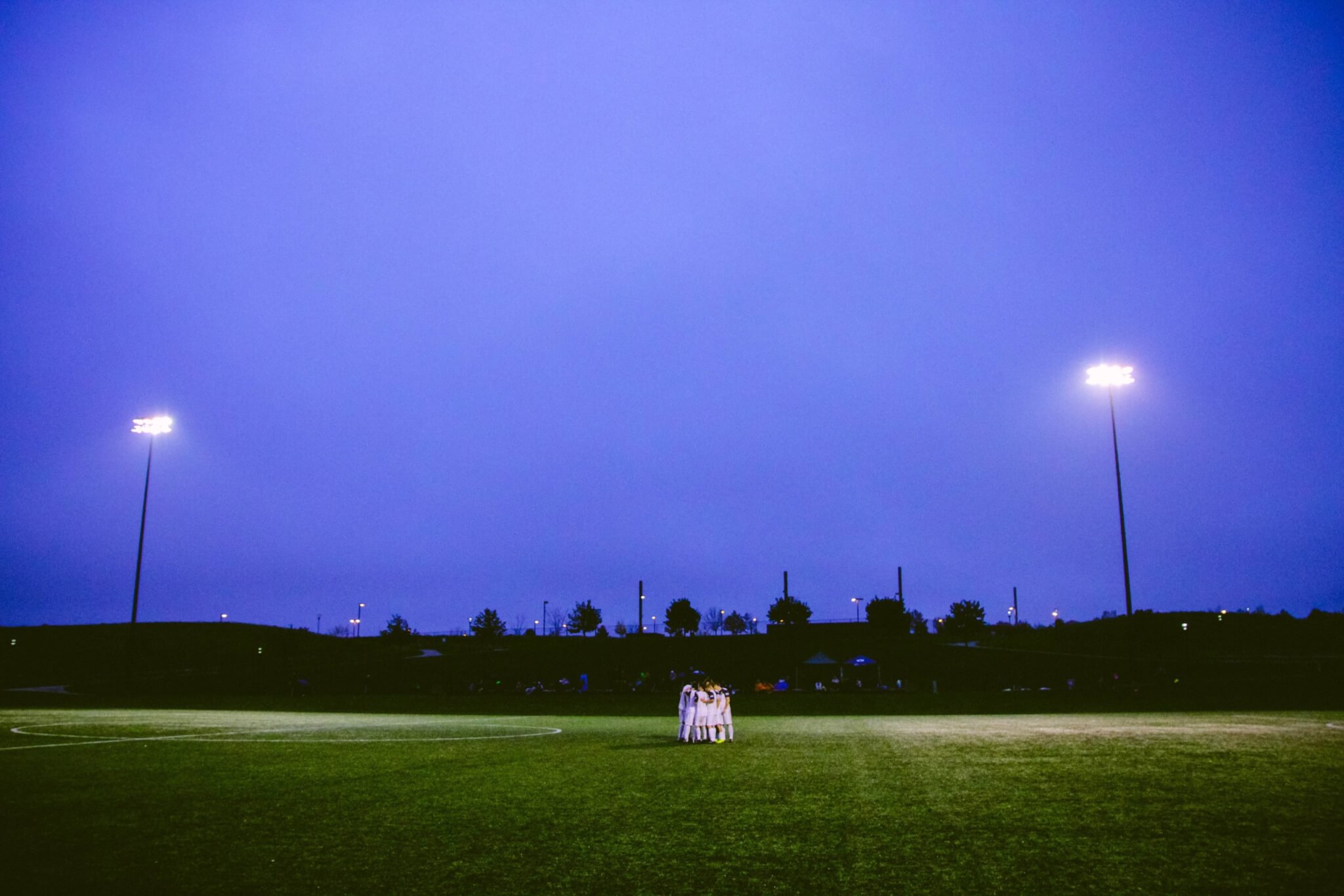
Moving in the Right Direction: Integrating Positive Development in Youth Support
“A community where youth have space, support and freedom to play tends to be one with less crime and more post-secondary graduates.”
– Play Works, 2016, p. 2
Did you know that sport activities are the most popular extra-curricular activity for youth across Canada? Over 80% of youth participate in at least one organized sport (Guèvremont et al., 2008). This makes sport-focused youth programming a prime area where we can support youth not only gain physical skills such as mobility and agility, but also develop important life skills such as leadership, communication and team work. That being said, these life skills aren’t just automatically learned as a by product of participating in sports programming. Youth sports program need to be intentionally designed and facilitated with life skill learning and psychosocial development in mind.
YouthREX’s latest Research to Practice report, Game On: Sport Participation as a Vehicle for Positive Development for Youth Facing Barriers, focuses on how taking the time to integrate positive youth development (PYD) strategies into youth sport programming is beneficial to the holistic development of youth, especially those facing barriers to wellbeing.
The cost of participating in extra-curricular sports activities, along with barriers to transportation, accessibility and potential cultural barriers often negatively impact the ability for some youth to access these opportunities. The recent Toronto Child and Family Poverty Report Card (2016) found that “48% of children in families with an income below $30,000 do not participate regularly in out-of-school sports and arts activities.” We turned to Toronto’s MLSE LaunchPad, an initiative of the MLSE Foundation, to be partner on our Game On: Sport Participation as a Vehicle for Positive Development for Youth Facing Barriers report because it felt like a natural fit – their work is focused on addressing these barriers to sport activities by increasing access to program and facilities in a diversity of ways for youth facing barriers to wellbeing.
The MLSE LaunchPad’s mission is to “improve the lives of youth by building facilities, giving to sustainable programs and empower youth through sports and recreation.” The collaborative LaunchPad space aims to leverage sport, education and research to promote social change and their commitment to this mission is evident in their programming, which intentionally integrates strategies to support positive youth development.
“In our model, we understand the interconnectedness of physical and mental health, as well as the critical importance of social and economic inclusion. MLSE LaunchPad works to create conditions that support healthy and active citizenship across a lifetime… [the Game On report] makes an important contribution not only to our work, but to that of our fellow youth sport programmers and researchers, by reviewing and describing evidence-based strategies and examples of fostering life skills, positive development, and wellbeing through youth sport.”
– Marika Warner, Director of Measurement and Evaluation and Bridgette Estrela, Director of Partnerships and Programming, MLSE LaunchPad*
What does all of this mean for youth work specifically? We asked Corliss Bean, YouthREX Research and Evaluation Specialist and co-author of the Game On report to share some key advice for frontline youth workers working in sport programs, based on the report recommendations. Here’s what she had to say:
“My recommendation for frontline youth workers is to be explicit in your approach when teaching life skills in youth sport and physical activity programming. Time doesn’t have to be a barrier for integrating life skills into your programming, as you can incorporate life skill discussion and activities congruently into existing sport programming. Whether that is through selecting a life skill of the day or utilizing teachable moments when something happens during programming, these strategies can help youth understand and foster various life skills.” Corliss goes on to add:
“Don’t assume that youth will develop these skills as a by-product of their participation in your program; help youth draw connections between the life skills they learn in your program, to other areas of their lives, such as at school, home or work”.
We know that sometimes things are easier said than done, so we encourage you to check out the resources below for more on the report, a case study example on how to integrate life skills learning and PYD into your youth program, and information that can help inform and strengthen your work with youth. We also invite you to join our webinar on January 31, 2017, 10am – 11am EST where we will be discussing the report with special guests from Motivate Canada and MLSE LaunchPad.
#GameOn!
*Read more from Marika Warner, Director of Measurement and Evaluation and Bridgette Estrela, Director of Partnerships and Programming, MLSE LaunchPad in the foreword to Game On: Sport Participation as a Vehicle for Positive Development for Youth Facing Barriers.

